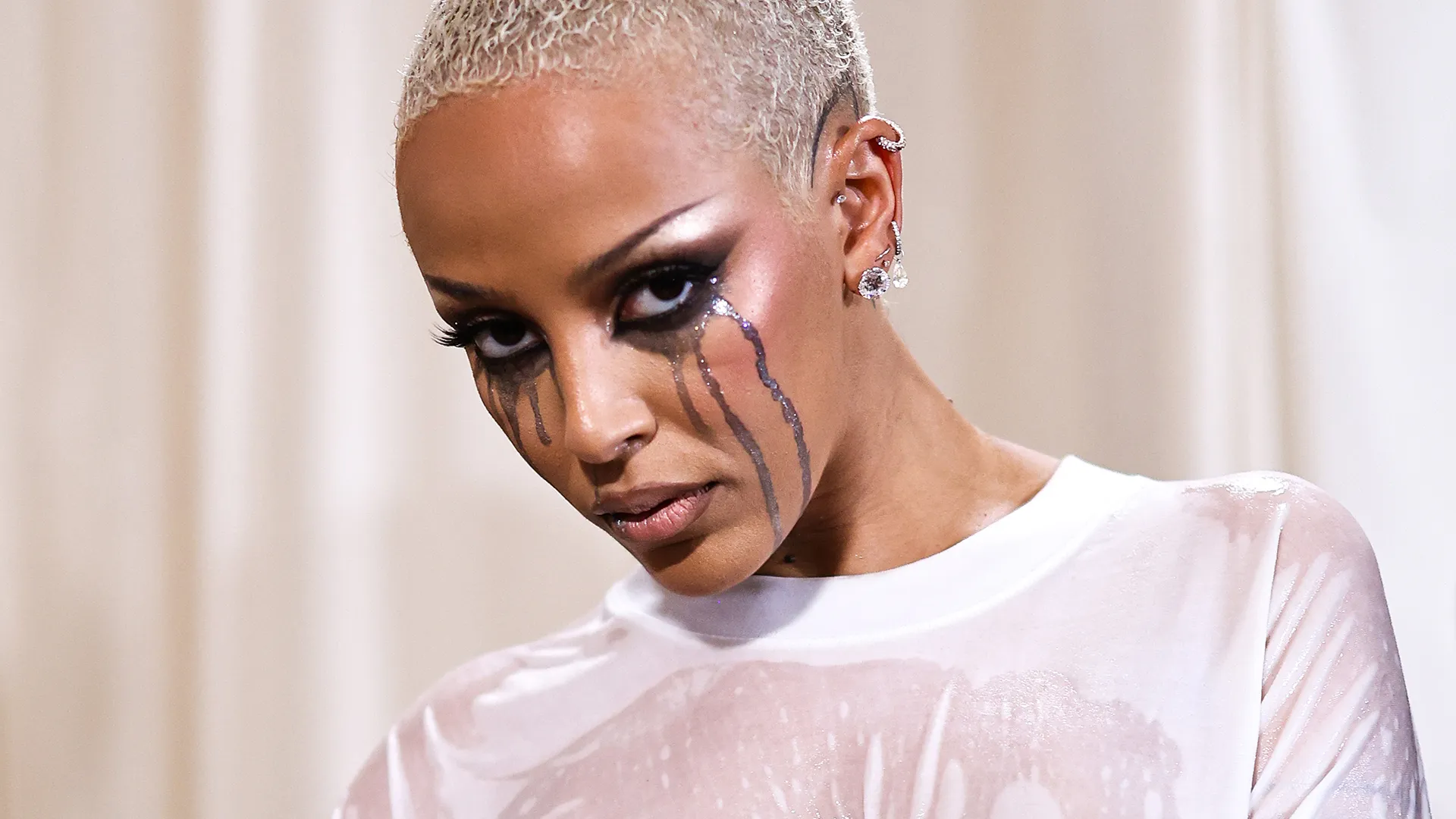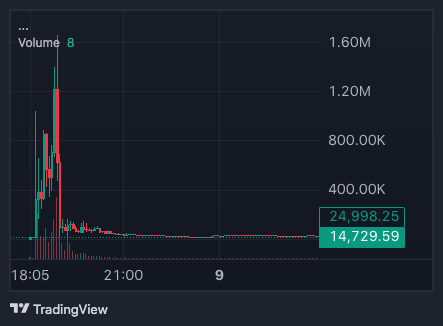In recent months, the cryptocurrency world has witnessed a disturbing trend: an increasingly higher number of high-profile celebrity social media accounts are being hacked to promote crypto assets and meme coins.
These series of incidents have not only raised concerns about online security but have also shed light on the potential risks associated with the booming cryptocurrency market and the easiness with which digital assets can be minted for ill-gotten purposes.
American Rapper Doja Cat is the Latest Celebrity to Pump Fraudulent Meme Coin
The latest victim of this trend was Doja Cat, a popular American rapper whose X account was illegally used on July 8 to promote a Solana-based meme coin named DOJA. Boasting 5.6 million followers, many fans were surely drawn to buy the digital asset to support their beloved artist.
Once the hacker gained control of the account, the person or group proceeded to post a series of messages promoting the DOJA token. Some of the posts included phrases like “Keep buying DOJA”, “The real queen of Solana DOJA”, and “Buy $DOJA or else.”
In total, the hacker posted over twenty tweets and went as far as to delete the singer’s profile picture and bio – a move that rapidly evidenced that the account had been compromised.
Recognizing the breach, Doja Cat quickly took to her Instagram account, which has 24 million followers, to warn her fans about the hack. In an Instagram story posted on Monday evening (ET), she stated: “My Twitter’s been hacked. These messages are not from me.”
The token attracted significant interest from investors in the first hour after it was minted as evidenced by its market cap, which surged to $1.6 million initially. However, shortly after Doja clarified the situation, the value of $DOJA dropped to less than $100,000. Currently, the token’s market cap stands at less than $15,000 according to data from DEX Screener.
Hackers Also Gained Control of Metallica Account to Pump METAL
The Doja Cat incident is not an isolated case. Last month, the X account of the famous rock band Metallica was also breached and used to pump a meme coin named METAL. To gain the fans’ credibility, the hackers claimed that they were collaborating with Ticketmaster and Moonpay – a crypto payments platform – and stated that holders of METAL would receive discounts and perks.
Meanwhile, in an even bolder move, the hacker(s) hosted a Twitter Spaces conference to discuss the token and its use cases.
The crypto community rapidly recognized that something was not right and users started flagging the posts. Meanwhile, the President of Moonpay, Keith Grossman, took to social media to clarify that his company had not supported any campaign involving METAL or associated with the band.
The payments platform issued a direct warning about the scam later that cleverly referenced Metallica’s famous song: “Anyone offering the METAL token is not the master of puppets, they’re the master of scams.”
These actions did not prevent the token from reaching high volumes and a large market capitalization. Data from DEX Screener shows that METAL’s market cap quickly exceeded $100,000 but fell right after to less than $10,000.
The Broader Trend: A Wave of Celebrity Crypto Hacks
The latest incidents involving Doja Cat and Metallica are just two in a growing list of public figures who are being targeted by scammers to exploit their following by pumping meme coins.
Other notable cases include the former wrestling star Hulk Hoga, the American rapper 50 Cent, and the actress Sydney Sweeney, all of who experienced a breach of their social media accounts for this purpose.
My Twitter & https://t.co/iaLj5OUvRT was hacked I have no association with this Crypto. Twitter worked quickly to lock my account back down. Who ever did this made $3,000,000 in 30 minutes. pic.twitter.com/I07Eqpc2xl
— 50cent (@50cent) June 23, 2024
Meanwhile, other celebrities like Jason Derulo, Iggy Azalea, and Caitlyn Jenner have launched tokens that they truly endorsed but they have been the subject of controversy amid their involvement with a promoter named Sahil Arora who reportedly scammed these and other public figures by helping them launch their tokens to then pull a pump-and-dump scheme by exploiting his access to a large percentage of the asset’s total supply.
These celebrities have been forced to explain to their fans what has happened to prevent those who fell prey to the scams take legal action against them. However, the fact that they openly endorsed the assets at some point still exposes them to being targeted by lawsuits from people who were unaware of what was happening behind the curtains.
The Pump.fun Phenomenon: A New Risk Factor to Consider
The rise in popularity of the Solana-based meme coin minting Pump.fun has added fuel to the fire and has increased the risk of scams as hackers who gain access to celebrities’ accounts can rapidly use the platform to mint assets that can be used for pump-and-dump schemes and rug pulls.
Its user-friendly interface and low barriers to entry have made it a popular choice for both legitimate projects and criminals. Before this platform, developers had to put up a substantial amount of money in crypto to launch a token (mostly for the liquidity pool) but that is no longer the case.
The Pump.fun protocol has been a centerpiece of the proliferation of meme coins, many of which have little to no inherent value. When combined with the trend of hacked celebrity accounts promoting these tokens, the risk for unsuspecting investors is higher than ever.
For example, the RICH token, promoted through the hacked social media account of the American rapper Rich The Kid, was launched on Pump.fun and quickly amassed a $90,000 market cap just two hours after its launch.
Similarly, the JENNER token, which was heavily promoted through Caitlyn Jenner’s account was also launched on Pump.fun and reached a market cap of $27.1 million in just eight hours. It is unclear if Jenner’s account was compromised or not.
These incidents highlight how quickly these meme coins can gain traction and potentially lead investors to pour money into them to then experience significant financial losses after the true nature of the event is uncovered.
Protecting Yourself Against Crypto Scams
In light of these incidents, both celebrities and their followers should take adequate steps to protect themselves from falling prey to scammers. Celebrities should implement strong security measures on their social media accounts including two-factor authentication (2FA) and regularly monitor their accounts for any signs of unusual activity.
Moreover, influencers with large followings should have a comprehensive response and damage control plan in place to address potential hacks quickly.
Meanwhile, for investors, skepticism is key. Even promotions from trusted celebrity accounts should be viewed with caution, especially if they appear to emerge suddenly and the phrasing and content is inconsistent with the public figure’s usual interactions.
Thorough research should be conducted before investing in any cryptocurrency or token and promises of quick or guaranteed returns should be treated with extreme skepticism. It’s also important to verify the information through official channels before making any investment decisions.
The increasing frequency of celebrity account hacks promoting crypto assets raises several important concerns. First and foremost, it highlights the existent vulnerabilities in popular social media platforms. The ease with which high-profile accounts are being compromised is alarming and calls for improved security measures.
Secondly, these incidents pose substantial financial risks for investors. Unsuspecting followers of these celebrities may fall victim to pump-and-dump schemes and may end up losing significant amounts of money.
These hacks may lead to increased regulatory scrutiny of platforms like Pump.fun and could force celebrities to provide appropriate disclosures if they plan to offer this type of asset to their fans.

